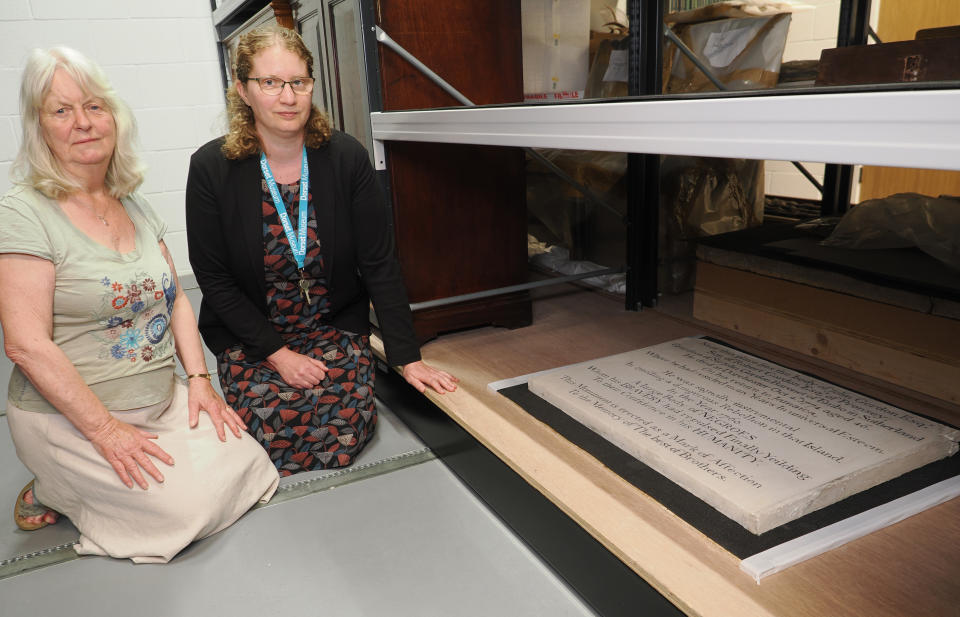‘Repugnant’ memorial to slave owner removed from church
A “repugnant” memorial to a slave owner which praises him for quelling a rebellion has been removed from a church to a museum in the first relocation of its kind.
The plaque in St Peter’s Church, Dorchester, Dorset, commemorates John Gordon who managed plantations in Jamaica for absentee British owners, and also owned some plantations himself.
Originally from Scotland, Mr Gordon died in 1774 in Dorchester as he was travelling to Falmouth to catch a ship to return to Jamaica but had no known Dorset connections.
The Church of England took the action to move the plaque to the nearby Dorset Museum where it will be viewable on request after churchgoers questioned its presence in the church.
A spokeswoman for the Diocese of Salisbury said: “The memorial is highly unusual in recording an actual instance of rebellion by enslaved people – Tacky’s revolt of 1760 – and is considered to be of historical importance for this reason.

“However the wording on the monuments explicitly refers to Gordon’s actions in quelling the rebellion, praising him and using offensive language.
“Many worshippers at St Peter’s and visitors had long felt the monument had no place in a church which sought to be open and welcoming to everybody.
Max Hebditch, a historian who attends St Peter’s, carried out research into Gordon and the church applied through the Church of England’s planning system for the monument to be removed from the wall and put in Dorset Museum next door.
Ruth Arlow, diocese chancellor, said: “The monument celebrated in language of acclamation the violent quelling of a rebellion by enslaved people against a status that is now universally acknowledged as morally repugnant and contrary to Christian doctrine.
“Its continued presence in the building seemed to imply the continued support, or at least toleration and acceptance, of discrimination and oppression and was inconsistent with the message of the universality of God’s love which the community of St Peter’s sought to share.”
Harvard University Professor Vincent Brown, author of Tacky’s Revolt, The Story Of An Atlantic Slave War, supported research into the monument undertaken by the church.
He said: “The Diocese of Salisbury’s decision represents a model for taking history seriously by honouring the values of the present without erasing or forgetting the past.
“To remember enslavers is not to celebrate them rather it is to acknowledge the dark legacy of their influence on our world.”
The Archdeacon of Sherborne, Penny Sayer, said: “Local people were asking if it was appropriate to have such a monument in a church, or is it more appropriate to have it somewhere else.
“It is really important that the story is told, particularly because it mentions Tacky’s revolt which represents hidden voices, people whose stories are not often told.
“There were very careful steps taken by the church to ensure the monument was researched and the right process followed.”
The memorial is to be replaced with a simple plaque noting details of the life and death of Gordon whose descendants have been consulted on the replacement.

 Yahoo News
Yahoo News 
